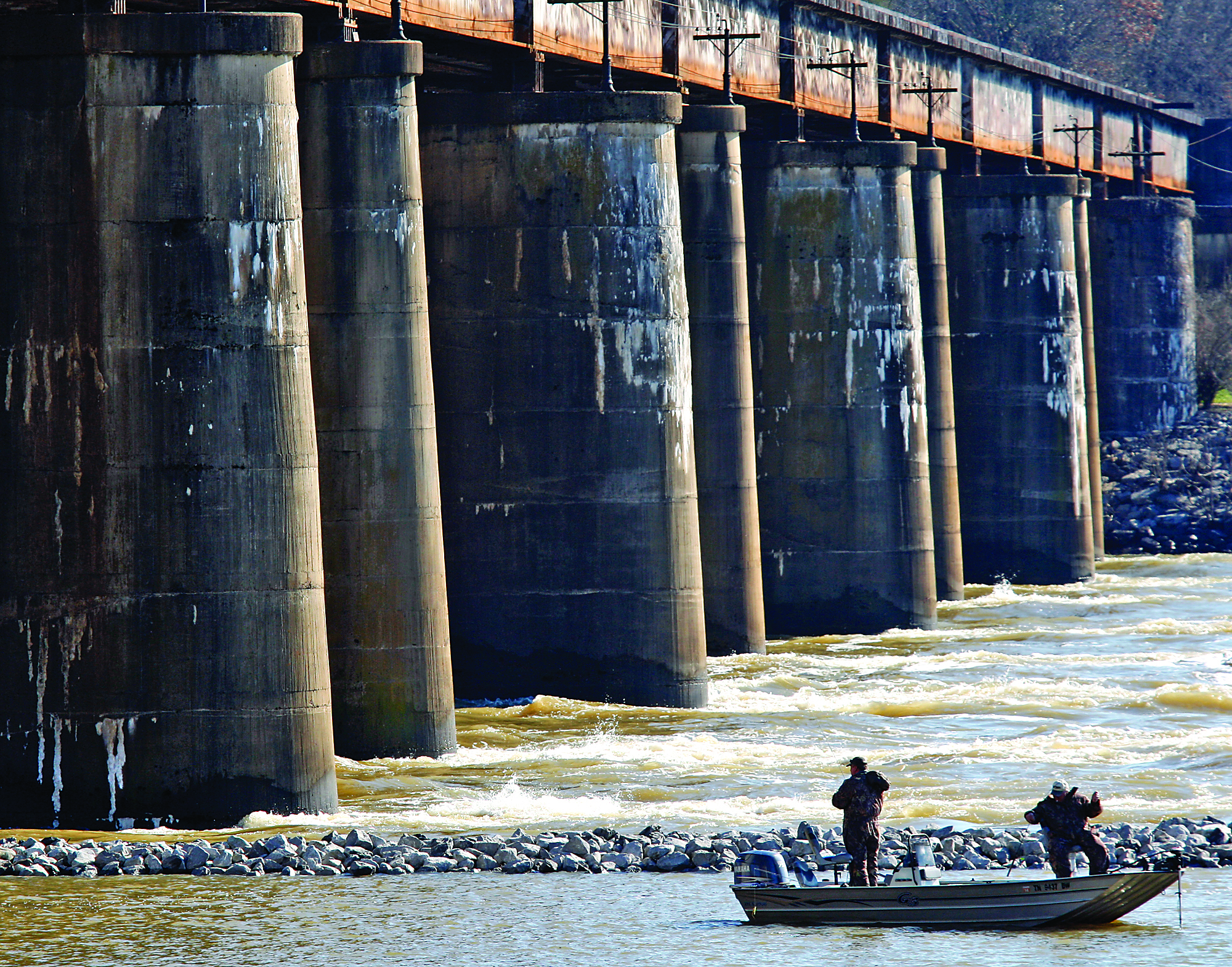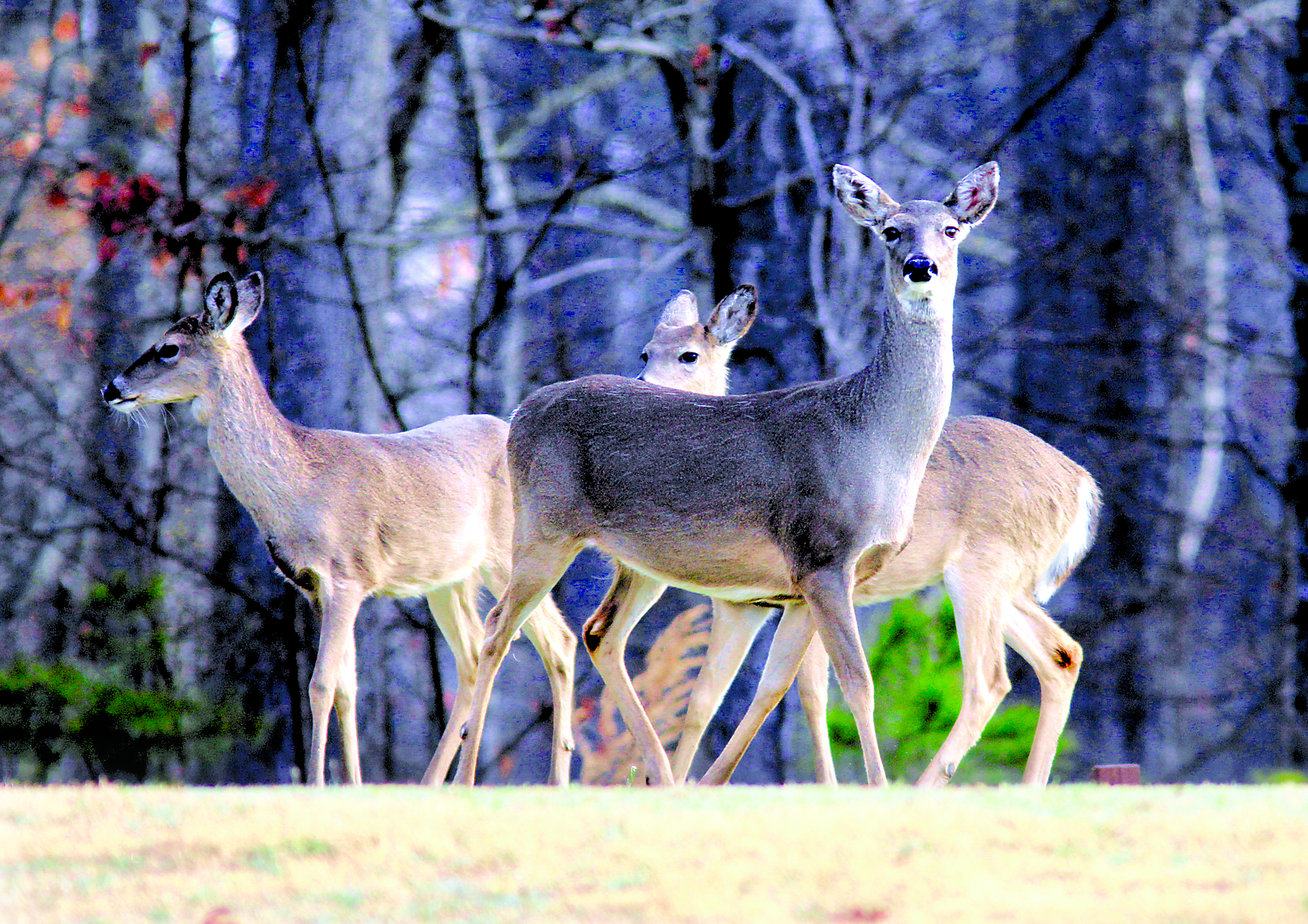Tennessee licensesHunting and fishing licenses go on sale each year on Feb. 18. Resident hunting and fishing licenses can be purchased by:• People who possess valid Tennessee driver's licenses.• People who have lived in Tennessee for 90 consecutive days with the genuine intent of making Tennessee their permanent home. Proof of residency required.• Military personnel on active duty in this state and their immediate families, who reside with them.• Students enrolled in Tennessee schools, colleges or universities for at least six months.• A Social Security number is required.Tennessee license types• Hunting and Fishing Combination ($28): Minimum license required to fish or hunt small game.• Annual Sportsman ($136): All-inclusive license for hunting, trapping and sport fishing without state supplemental licenses or nonquota permits; holders may apply for quota permits at no extra cost.• Junior Hunt/Fish/Trap ($8): For ages 13 to 15. Good for hunting all game, fishing and trapping. Must be purchased before 16th birthday. No supplemental licenses required, but special season and WMA permits need to be purchased. Fees apply when applying for quota hunt permits, as well as leftover permits.• Permanent Senior Citizen Hunt/Fish/Trap ($11): Can only be purchased when 65th birthday is reached. No supplemental licenses are required, but special season and WMA permits need to be purchased, as well.• Annual Senior Citizen Permit ($41): May be purchased only by holders of a Type 166 license. Covers all required nonquota permits and allows holders to apply for quota permits with no additional fees.• Note: Check the Tennessee Wildlife Resources Agency website at www.tn.gov/twr for information about supplemental licenses for large game and special licenses for disabled hunters, trapping and lifetime permits.GeorgiaGeorgia licenses are available throughout the state from about 400 license agents in many sporting-goods stores, marinas, bait and tackle stores, hardware stores, etc. Licenses also may be purchased at Department of Natural Resources enforcement offices statewide. For more information, go to www.georgiawildlife.com.
Area hunting and fishing organizations• Chattanooga Bass Association: A nonprofit community organization that has been in operation since 1976. The CBA operates a local fishing tournament circuit with tournaments throughout the spring, summer and fall, culminating with the two-day CBA Classic in early November. For more information, go to the CBA website at www.cbatournament.com.• Chattanooga Ducks Unlimited: This organization provides education for local duck hunters and promotes habitat conservation through fundraisers and other activities. Learn more at www.chattanoogaducksunlimited.com.• Tennessee Wildlife Resources Agency: This state agency is in charge of managing Tennessee's fishing and wildlife resources and licensing for hunting and fishing throughout the state. Learn more at www.tn.gov/twra.• Trout Unlimited: Appalachian Chapter: This group promotes trout fishing and river conservation throughout the area and encourages new trout fishermen and women through education programs. Learn more at www.appalachiantu.org.• Tennessee Bass Federation: This grassroots organization promotes catch-and-release bass fishing in the state, and it works to promote fishing and introduce young people and new fishermen to the sport through local tournaments. Learn more at www.tnbass.com.
Hunting and fishing have a long history in the Chattanooga area, attracting many local residents and visitors to the numerous lakes, streams and wilderness areas throughout the region.
Fishing in general, and bass fishing in particular, remains popular as a relaxing pastime and as an outlet for competition. Organizations such as the Chattanooga Bass Association and the Chattanooga Bass Assassins and others give local anglers opportunities to compete in local tournaments as well as enjoy the company of fellow sportsmen.
The lakes and reservoirs throughout the Tennessee Valley Authority region offer a variety of habitats for different types of fishing, and the Tennessee Wildlife Resources Agency stocks many rivers and streams with bass, trout and other sporting species. In addition, the TWRA works to manage area waters to maintain a healthy and growing fishery for years to come.
For hunters, there are numerous options in the region. Tennessee, Georgia and Alabama all maintain wildlife management areas in the region and hold scheduled hunts for deer and small game in the late summer and fall.
New for 2013 in Tennessee is the TWRA's mobile website, which allows the online purchase of hunting, fishing and boating licenses as well as the online reporting of all big-game harvesting.
A license is required to hunt and fish in Tennessee, Georgia and Alabama, with various options and rules depending on what type of fish or game is being sought. It is always best to check first with the wildlife resources agency in the state where you are planning to fish or hunt.
Contact staff writer Jim Tanner at jtanner@timesfreepress.com or 423-757-6478.
Nearby Tennessee hunting
CHEROKEE NATIONAL FOREST: It is located in Polk and Monroe counties, covering a combined 298,456 acres. Game species include Russian boar, black bear, white tail deer, turkey and grouse.
• Directions: From Chattanooga, take I-24 east to I-75 North to Tennessee Highway 60 (Exit 25) toward Cleveland/Dayton. Turn left onto TN-60 S/Georgetown Road NW, 25th St. NW. Continue on TN-60. S/25th St. NW. Left onto U.S. Highway 11/N Lee Hwy/N Ocoee St.
HIWASSEE WILDLIFE REFUGE: The Hiwassee Wildlife Refuge is in Meigs and Rhea counties, covering 1,000 acres on the Chickamauga Reservoir. Nontoxic shot approved by the U.S. Fish and Wildlife Service is required for small-game hunting. Refuge is closed to all public use, including all forms of trespass, from Nov. 1 to the last day of February.
• Directions: From Highway 58 and Highway 60 near Georgetown, take 60 west; go 6.7 miles and turn right onto Old Highway 60. Go 0.7 mile and turn right onto Blythe Ferry Road. Go 0.4 mile and turn left onto Meigs County Road 163. Take the right fork to the parking area. From Highway 27 and Highway 60 in Dayton, take Highway 60 east. Go 8.3 miles and turn left onto Old Highway 60. Follow rest of directions as given above.
PRENTICE COOPER STATE FOREST: Prentice Cooper State Forest in Marion County covers about 27,000 acres. The state forest lies atop Suck Creek Mountain overlooking the Tennessee River Gorge. Each spring and fall, Prentice Cooper State Forest and Wildlife Management Area holds managed turkey and deer hunts for licensed and permitted hunters.
• Directions: On Highway 27 five miles east of Powell's Crossroads.
Nearby Tennessee fishing
ELK RIVER: A great river for trout fishing less than a two-hour drive from Chattanooga.
• Directions: Take I-24 west to Monteagle. Take the Sewanee exit left on Highway 15 heading west. Connect to Highway 50 west in Winchester. About a 15-minute drive will take you to the public put-in below Tims Ford Dam.
LITTLE SEQUATCHIE RIVER: This river is stocked by the state with rainbow trout each year.
• Directions: I-24 west to the Highway 28 exit to Dunlap.
CHICKAMAUGA LAKE: Fish are abundant in the lake; primary species of sport fish include white crappie, bluegill, white bass, channel and blue catfish, largemouth bass and sauger.
• Directions: Take exit 4 from I-75 and go north on Highway 153 (Chickamauga Dam/Airport exit) to the Chickamauga Dam Exit.
HIWASSEE RIVER: The Hiwassee River is one of the Southeast's best-kept fishing secrets. It is considered by area fishermen as the best dry-fly river in the Southeast.
• Directions: From Chattanooga, take I-75 north to Cleveland, exit at U.S. Highway 64E (Exit 20). Travel east on U.S. 64 to Highway 411N. Park is 6 miles north of Benton.
NICKAJACK RESERVOIR: This is an excellent fishery for smallmouth bass, largemouth bass, striped bass, white bass, panfish and catfish.
• Directions: Take I-24 west to Exit 161; look for signs.
NORTH CHICKAMAUGA CREEK: Hamilton County's streams are stocked with rainbow trout in early spring. Although fishing can be good in the cooler season, most stocked trout are fished out by summer, with the exception of a few hold-over fish.
• Directions: North Chickamauga Creek Gorge is 15 miles north of Chattanooga. Via Highway 27, take the Thrasher Pike exit and turn left. Proceed about 1 mile to Dayton Pike and take a right. Proceed another mile to Montlake Road and take a left. Proceed 1.5 miles to the entrance, which will be on the left.


